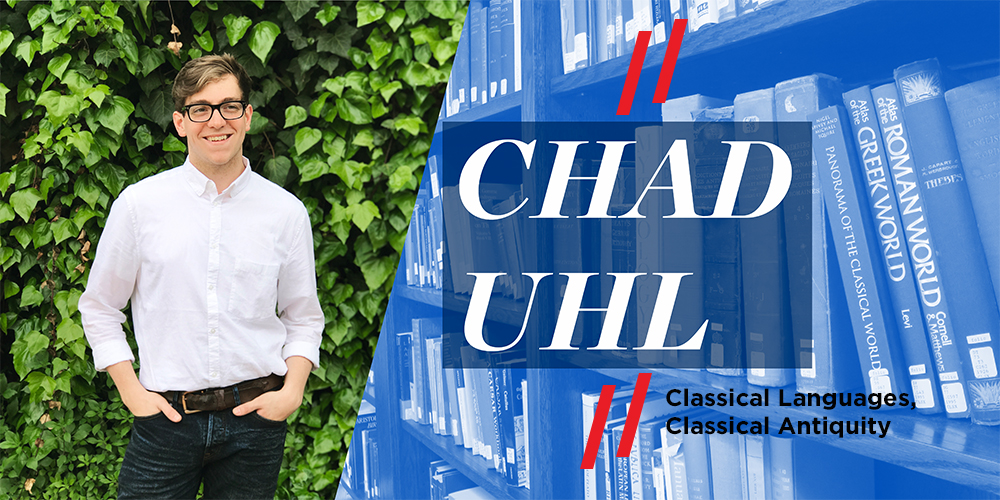
Describe your research in a few sentences that we can all understand:
My current research pertains to the similes which Vergil employs to delineate a rhetoric of movement and stasis in the Aeneid. Throughout the text, Vergil develops a sense of stasis and fixity surrounding Aeneas while Dido is constantly associated with movement and wandering. While this is clearly an inversion of their physical states, Vergil flips the script after Dido’s death. In this project, I hope to explicate Dido and Aeneas’ relationship within the epic in terms of this tension between movement and stasis, which might also be described as a conflict between order and chaos.
What is the most exciting part of doing research?
To me, the most exciting part of doing research is finding points for scholarly intervention—points where other scholars have made assumptions or passed over analysis that would have been beneficial to the field. This is where you can make your mark and contribute something valuable.
What did you learn by participating in the Undergraduate Research Seminar at KU? Did you learn anything from the other participants that will help with your own studies?
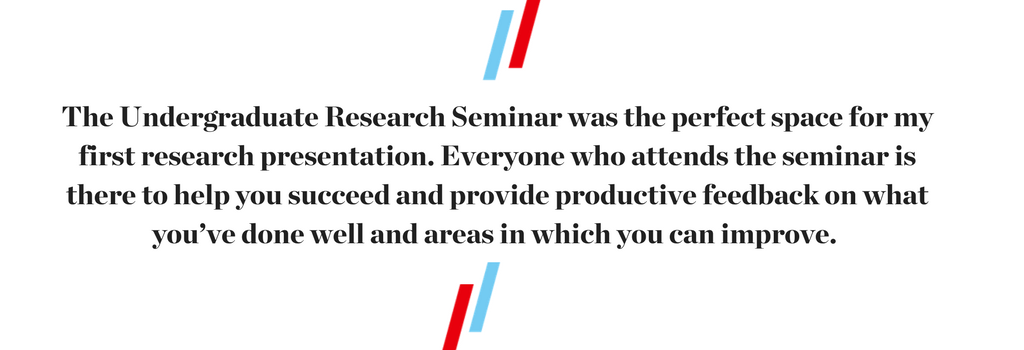 Everyone can always improve something about their work and that’s the beauty of academia. This seminar highlights that and establishes a really safe and comfortable environment for testing out your research and scholarly ideas.
Everyone can always improve something about their work and that’s the beauty of academia. This seminar highlights that and establishes a really safe and comfortable environment for testing out your research and scholarly ideas.
Give your research advisor a shout-out:
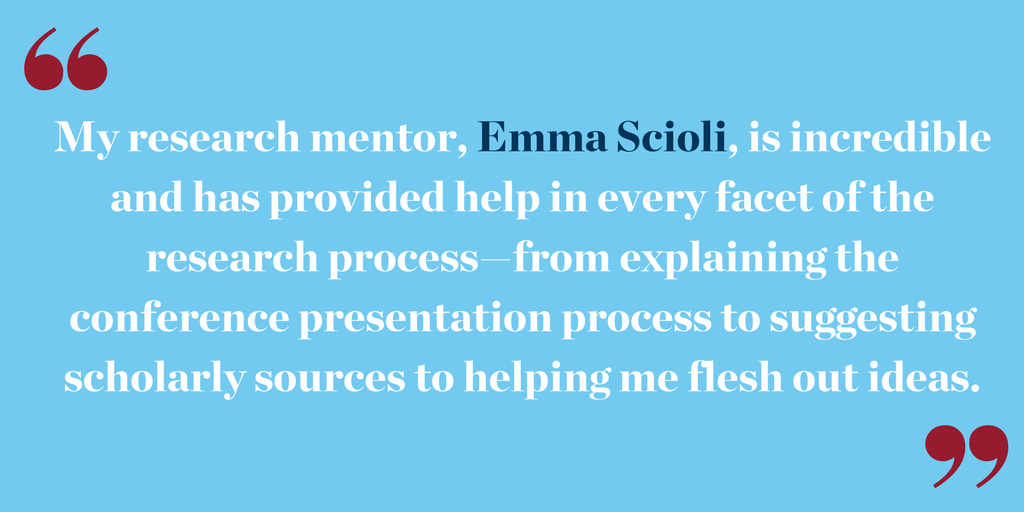
Are you in the Honors program? If so, why should other students enroll in the Honors program?
I am in the Honors program and it is through this involvement that I met Dr. Anne Dotter, who encouraged me to participate in the seminar, Dr. Anne Wallen and Dr. Mary Klayder, who set me on my academic trajectory, Dr. Phil Baringer, who led an excellent interdisciplinary seminar, and many other who have supported me throughout my time as an undergraduate. In addition to being a great resource for advising and academic support, the Honors program has provided financial assistance for all of my endeavors, ranging from study abroad programs to conference presentations.
Why did you choose your major (majors)? And how do they complement each other?
I originally came to KU as a Computer Science major and I really loved it for a period of time. I started taking Latin courses and double majored in Classical Antiquity for a while until I fell out of love with Computer Science and switched wholly to Classics. It was a really difficult decision process, one fraught with the problems of funding, career prospects, et al., but I eventually decided to major in a field that I loved and knew had transferable skills to whatever I might want to do next.
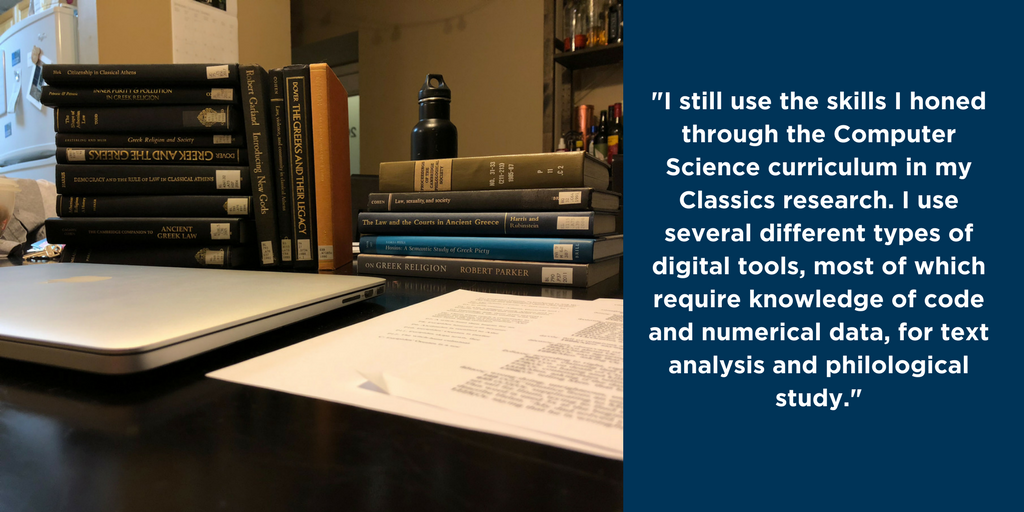
What has been your favorite class at KU? And why?
I think my favorite class at KU has been Roman Gender & Sexuality, which I took with Anthony Corbeill a little over a year ago. That class was my first real exposure to academic scholarship and Prof. Corbeill was an incredibly engaging professor. I loved it.
What is the benefit of being in the KU College alongside students studying sciences, arts and humanities?
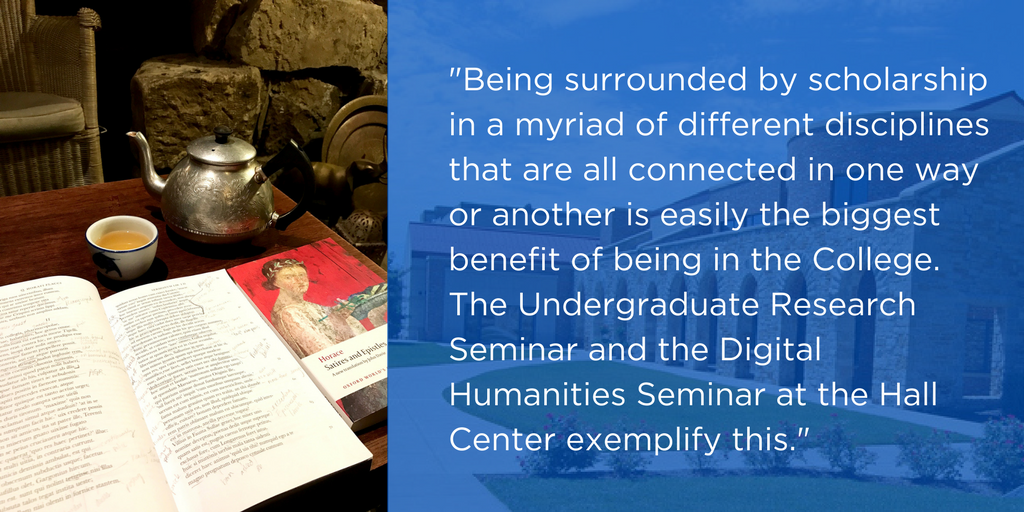
What do you want to do when you graduate?
I am currently awaiting responses to my graduate program applications. My hope is to attend a fully-funded PhD program in Classics, perhaps spending some time in an M.A. program first.
What would you tell your freshman self?
Don’t stress the small stuff and, to quote the immortal words of Mary Klayder, “It will be fine” (my italics). I was so stressed about switching out of CS and into Classics for a variety of reasons, but after I made the decision, things fell squarely into place and I never looked back.
What motivates you?
Knowing that I can contribute to the scholarly discussion on these topics which have been studied for centuries motivates me. Seeing how Classical literature relates to people today and that there are still lessons to be learned from these ancient minds is inspiring. After presenting some of my research at the Undergraduate Research Seminar, one student told me “I had no idea Classics was this cool!” Reactions like that motivate me.